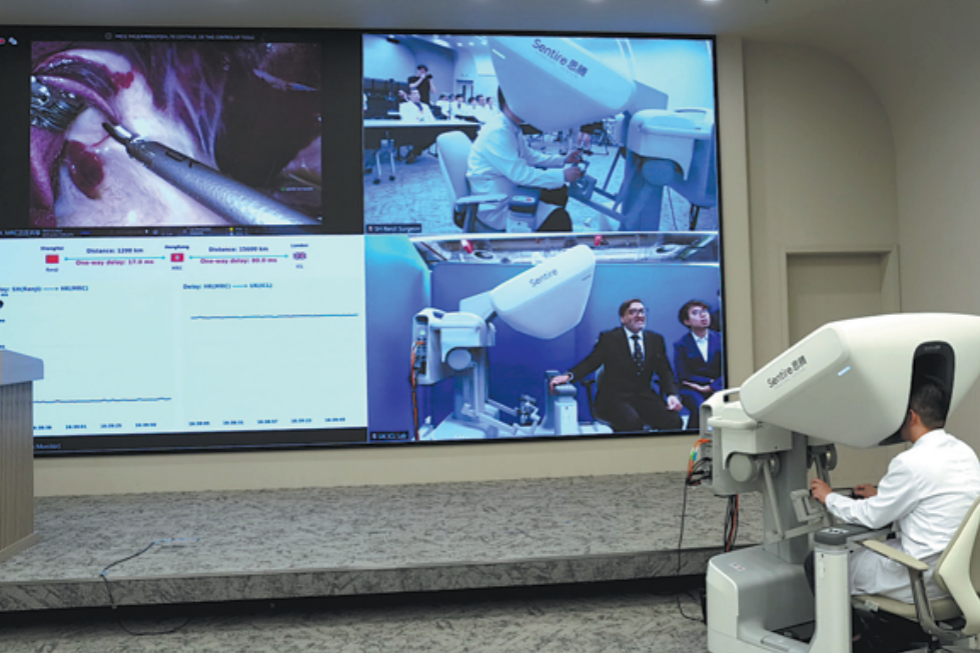Scientists develop AI model for better cancer detection

NANJING-Using artificial intelligence technologies, an international research team led by Chinese scientists has developed a rapid and accurate screening model to detect lymph nodes, which can assist doctors in cancer treatment.
Lymph nodes are the human immune system's first line of defense, protecting people from illnesses and virus infections. In the human body, lymph nodes are hundreds of small, round or bean-shaped glands that gather in the neck, armpit, abdomen and groin.
Cancer that starts in another part of the body and spreads to the lymph nodes is called metastasis, which is important for clinicians' ability to judge the development of cancer.
However, current MRI screening methods are time-consuming and cannot identify all the lymph nodes in scanned regions, lowering the detection accuracy.
A single lymph node occupies less than one-thousandth of an MRI sample, and it is easily confused with blood vessels and other tissues, said lead researcher Gao Xin of the Suzhou Institute of Biomedical Engineering and Technology under the Chinese Academy of Sciences.
"Even an experienced radiologist has to spend three to 10 minutes examining lymph nodes on one sample, and each case needs approximately 20 samples."
"For small lymph nodes with a diameter of less than 5 millimeters, the detection accuracy is always less than 70 percent," Gao added.
Based on MRI image data selected from 293 patients with rectal cancer at the Sixth Affiliated Hospital of Sun Yat-sen University from 2013 to 2016, researchers developed the AI-assisted screening model, which was turned into algorithms. The AI can detect the lymph nodes more accurately and about 100 times faster than people.
The researchers tested the AI model in patients at four medical centers in Guangzhou, Beijing, Suzhou and Guizhou, and compared its results with those of four Chinese radiologists specializing in gastrointestinal diseases. The results showed that it can accurately identify 3-mm-diameter lymph nodes with 80 percent accuracy.
The results were recently published in the journal EBioMedicine under The Lancet. Researchers from the University of Wisconsin School of Medicine and Public Health in the United States also participated in the study.
The AI model can also be used to detect metastatic cancers in other human organs or tissues, according to Gao.
"We believe the AI-assisted screening model can save a great deal of manual labor and improve clinical efficiency, which will benefit more patients," Gao said.
Xinhua
Today's Top News
- Digital countryside fueling reverse urbanization
- 'Sky Eye' helps unlock mysteries of the universe
- China offers LAC development dividend
- Future sectors to receive more play
- Nation sets its sights on export boost
- China to open its door to foreign investment wider






























